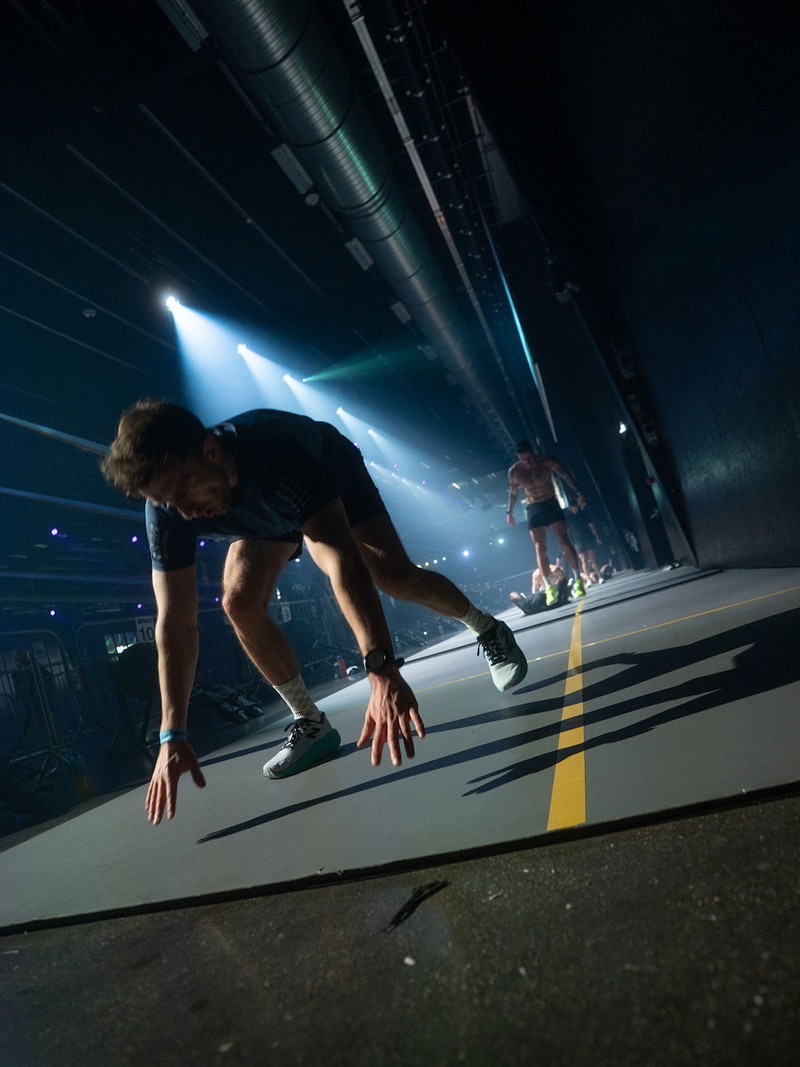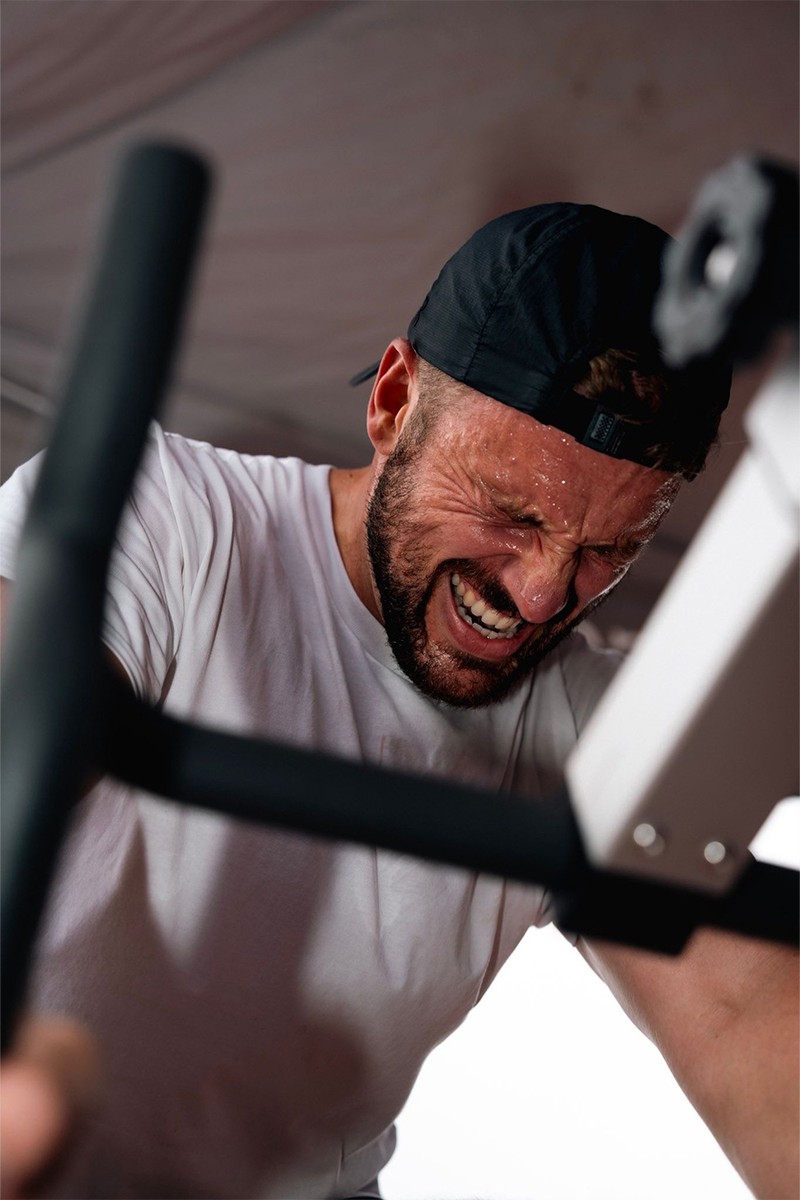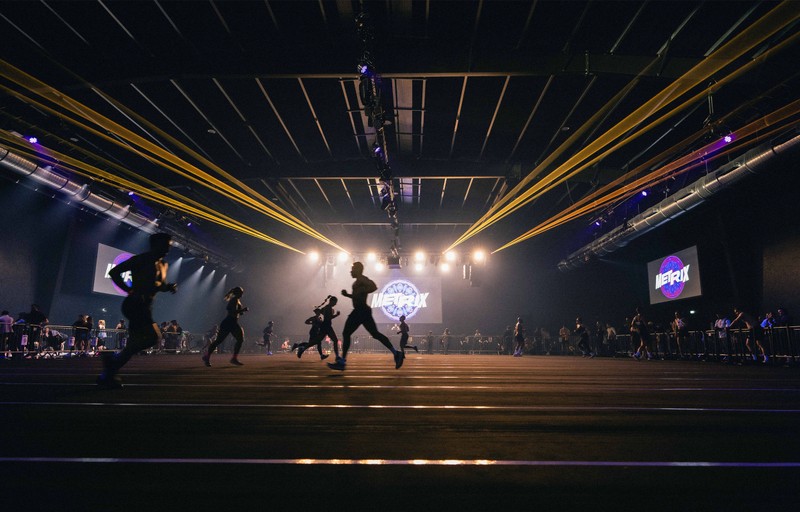
A Top PT Shares His Rules For Strength & Resilience
The Marines taught me everything about discipline. They taught me discipline, composure and how to stay calm when things get uncomfortable – which, let’s be honest, is most of the time when you’re being tested. That experience built not just physical strength but mental resilience. I learned that progress comes from consistency and composure, not from motivation or hype.
Leaving the Marines for the gym floor was a big shift. It taught me fast that coaching isn’t just about discipline, it’s about understanding people. Coaching has taught me empathy – not everyone responds to the same kind of pressure. The best trainers know how to read people as well as they read programmes. It’s not just about sets and reps; it’s about understanding what drives someone to show up.
My approach to training has simplified over the years. When I was younger, I thought progress came from volume – how many hours you could grind, how creative your sessions could be. Now, I’m all about mastering the basics. Longevity is built on quality, not chaos. I focus on doing the fundamentals properly, consistently, and with intent. That’s what keeps you training for decades, not months. I’d rather do five movements well than 50 badly.
Structure always beats motivation. Motivation is fleeting, but discipline is the anchor. When life gets messy, structure is what keeps you steady. If it’s raining, you’re tired, you’ve had a brutal day – that’s exactly when it matters most. Every time you override the comfort impulse, you build another layer of mental toughness. Eventually, it becomes automatic. You don’t ask if you feel like training; you just do it. Personally, having a one-year-old helps too – he’s basically a cardio machine. Running after him keeps me more active than any treadmill could.
I train seven days a week. I follow a programme I developed with my METRIX co-founder Toby Spooner. We keep it competitive – always comparing times, loads and progress. That accountability drives results. A typical week includes four strength sessions – lower body, upper, full body and power – plus three conditioning days: two Zone 2 endurance sessions and one METRIX-style simulation that replicates high-intensity performance.
If I’m short on time, I’ll go for a simple compound circuit. Heavy deadlifts, chin-ups and walking lunges. Big movements, big return. I steer clear of chaotic HIIT sessions that are all sweat and no structure. Training should have purpose – not just punishment.
There are three movements that anchor my training. The deadlift – the king of lifts, hitting every major muscle group and building real-world power. The chin-up – the upper-body deadlift, pure bodyweight strength. And walking lunges – underrated but brutal, building balance, grip and coordination all at once. If you focus on those three, you’ll build a body that performs as well as it looks.
Strength comes first. I like a balance between strength and endurance, but strength will always be the priority. It’s the foundation for everything else. My week revolves around four heavy strength days, with conditioning and mobility layered on top. Mobility gets one focused session a week – nothing fancy, just enough to stay pain-free and moving well. That balance keeps me strong, fit and durable without drifting into overtraining.
Recovery isn’t about being lazy – it’s part of the plan. A well-structured programme should build recovery in, but if you’ve had a bad night’s sleep or life’s piling on, take the day off. Listen to your body, but don’t confuse rest with inconsistency. For me, recovery is everything that happens outside the gym – nutrition, hydration, sleep, stress management. It’s the unglamorous stuff that makes the glamorous stuff possible. I’m big on structure here too: I eat well, hydrate properly, and try to get sunlight in the morning to keep my circadian rhythm on track.
Music is everything. Beats headphones on, volume up, head down. My playlist is always techno. It sets the tone and tempo, keeps me focused and in flow. Training is as much about mindset as movement – and music helps get me there.
If you’ve hit a wall, change something. When someone says they’ve hit a wall, it’s rarely a real wall – it’s boredom, burnout or lack of direction. You probably need one of three things: a better programme, a short break, or a new challenge. Sometimes all three. Fitness should evolve as you do. Change the goal, change the environment, find something that scares you a bit. That’s usually where the spark comes back.
Train for the feeling, not just the result. I don’t enjoy training alone – I thrive off people and energy. Add the right lighting, music and atmosphere, and suddenly training becomes an experience, not a chore. That’s what I try to create in every session. When fitness feels social and immersive, you push harder without even realising it. That’s the principle behind METRIX too – bringing people together through movement, competition and community. It’s about connection as much as it is about performance.
I’m training right now to compete in my own METRIX event. I want to prove the system works. After that, I’ve got an ultra-running challenge lined up. I like putting myself in completely different environments – it keeps me sharp and humble. If I could tell my younger self one thing, it would be this: look after your body early. You only get one. Don’t waste your best years chasing numbers or ego. Train smart, stay consistent, and make longevity the goal. That’s real strength.
Visit Metrix.Fitness
DISCLAIMER: We endeavour to always credit the correct original source of every image we use. If you think a credit may be incorrect, please contact us at [email protected].




